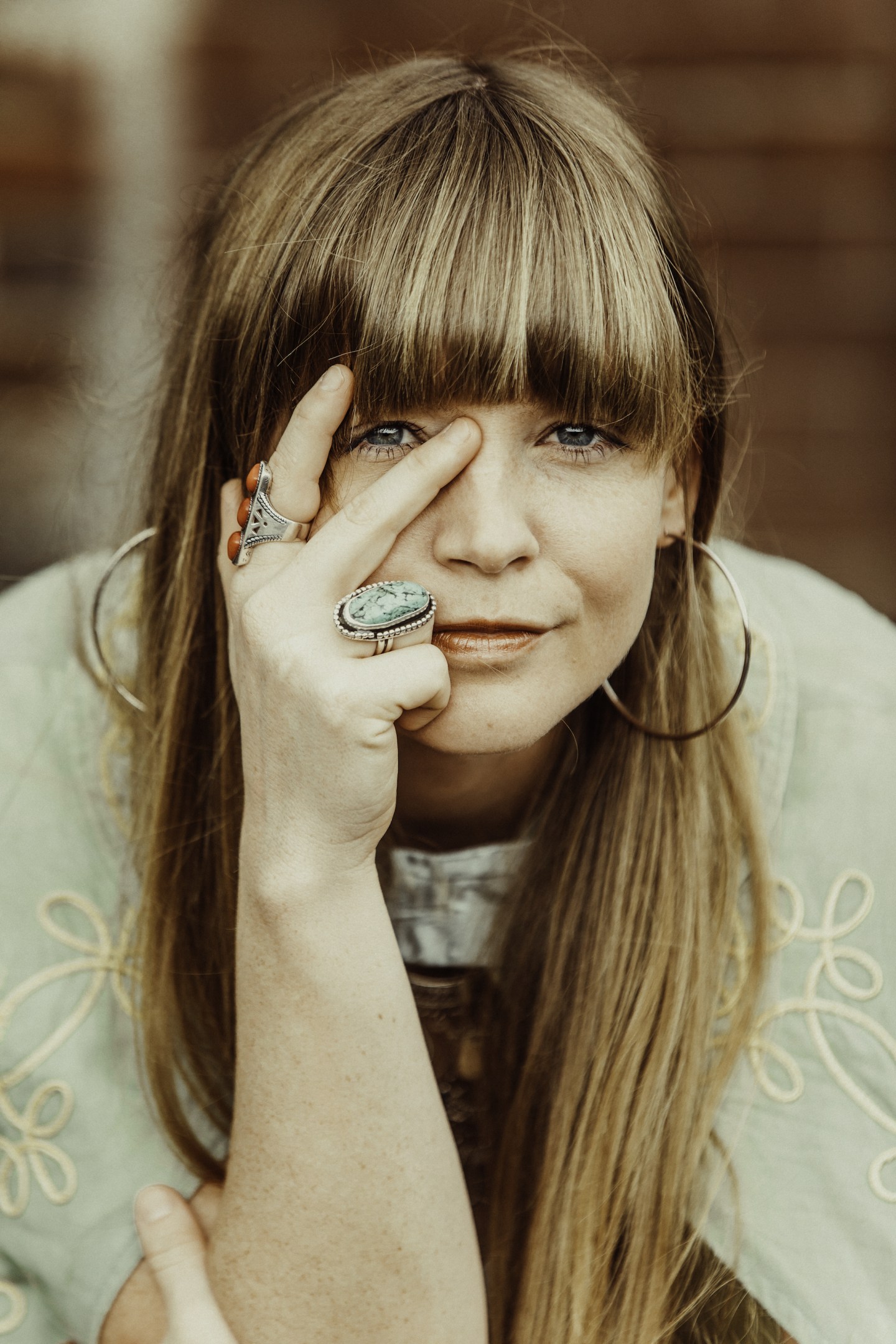
The FADER's longstanding series GEN F profiles emerging artists to know now.
When Courtney Marie Andrews was considering a move to Los Angeles, a friend of the 27-year-old songwriter made a familiar plea: “Don’t let it change you.” The advice inspired Andrews to write a song, a “sort of self-portrait,” she explains over the phone from Seattle, where she is staying with friends. The result is her new album’s title track, “May Your Kindness Remain,” a simmering sketch of an “underground queen, wearing loneliness like a costume” while perched, drink in hand, at a slot machine. It’s a sympathetic picture of someone whose heart is “busted and bent,” with an emphatically dignifying chorus. “If your money runs out and your good looks fade,” Andrews sings as organ swells, her lilt carrying a touch of teardrop twang. “May your kindness remain.”
May Your Kindness Remain is Andrews’s eighth album. A punk-steeped folkie casting sideways glances at mainstream country à la Lucinda Williams, she’s been a ringer for Jimmy Eat World and Damien Jurado, endured at least one acrimonious label split, and, for the past two years, has shuttled between couches and short-term rentals on the West Coast while navigating the professional wake of her critically adored 2016 full-length, Honest Life, which prompted comparisons to Joni Mitchell from Rolling Stone. May Your Kindness Remain, released in March by Mississippi indie label Fat Possum, has a smoky, windswept atmosphere befitting its downtrodden characters, but Andrews’s refrains are consistently optimistic. The word “kindness” appears in the name of two songs. “I did have reservations about that, but there just weren’t other titles,” she says. “It’s a central theme of the record.”

Andrews grew up outside of Phoenix, Arizona with her mom, who worked two jobs, and a rotating cast of cousins. Early on, she learned a lot about the relationship between mental illness and poverty; she’s lost several family members to suicide. “I’ve always known I was a feminist,” she says. “Then a girlfriend in middle school introduced me to riot grrrl.” Andrews’s first band was called Massacre in a Miniskirt; they debuted live in a carport. “I was the one in the band who’d come with full songs written, and someone said that, stripped-down, they sounded folk-y,” she recalls. “I thought folk was boring old people music, then I realized it’s a platform to tell stories, emotionally and politically. Then I was like, ‘This is my music — I never knew.’”
But punk left a strong impression on the upstart songwriter. Andrews sought gigs in coffee shops, busked downtown during a monthly art walk, and used Myspace to book her first tour, a Pacific Northwest jaunt in a station wagon, at the age of 17. Andrews also founded the biannual Phoenix Folk Festival, a daylong showcase of local artists that by 2010, according to a report in Phoenix New Times, drew a line of 100 people before the doors opened. The last installment of the festival, she says, featured about 20 performers. “That’s when I thought, woah, something’s really happening in Phoenix.”



But the emerging scene hit a sour note and, in 2011, she left Phoenix. Andrews fell out with a local record label; three of her albums are now unavailable. “A lot of artists were taken advantage of,” she says, declining to elaborate. She started touring with other groups, still recording music, but releasing it herself. “I was literally terrified to ever sign a deal with another label for, like, six years,” she says. In 2014 she landed in Washington, working as a bartender while she wrote material for her breakthrough, Honest Life, which she agreed to release on the Oregon independent label Mama Bird Recording Co. It’s sparer but not more intimate than May Your Kindness Remain, which has a vibrant mélange of organ, guitar, and backing vocals. The ensemble quality, with its cast of tastefully restrained players, reflects the new album’s lyrical theme of helping hands, the potent effect of small, thoughtful gestures. “Touring musicians are very isolated,” she says. “They’re getting by on the kindness of strangers.”
“I thought folk was boring old people music, then I realized it’s a platform to tell stories, emotionally and politically. Then I was like, ‘This is my music — I never knew.’”
Ultimately, Andrews says May Your Kindness Remain is about loving through depression in the age of Donald Trump. “Border,” the oldest song on the new record, is inspired by former Maricopa County Sheriff Joe Arpaio, a bigot and sadist who Andrews used to protest against in Phoenix. She’s also influenced by Hillbilly Elegy, the memoir of crisis-stricken Appalachia that made J.D. Vance an in-demand explainer of impoverished whites’ attraction to Trump. Not that her style is so didactic; “Two Cold Nights in Buffalo” is about how municipal disinvestment destroys communities, but it lures listeners with a rich, seemingly apolitical stanza: “Stuck in nickel city on the tainted side of a coin / El Niño brought a blizzard, Greyhound brought a boy.”
Although Andrews often romanticizes the road, in both song and conversation, she says that she doesn’t live anywhere in particular because it’s cheaper to roam. But she still wants to settle in Los Angeles, where she recorded May Your Kindness Remain during a weeklong session with producer Mark Howard in a big house. Andrews and her band tracked live from morning until night, sleeping on site. “It was five of us facing each other in a room,” she recalls. “We did rock songs during the day and the ballads while the sun was coming down.”
